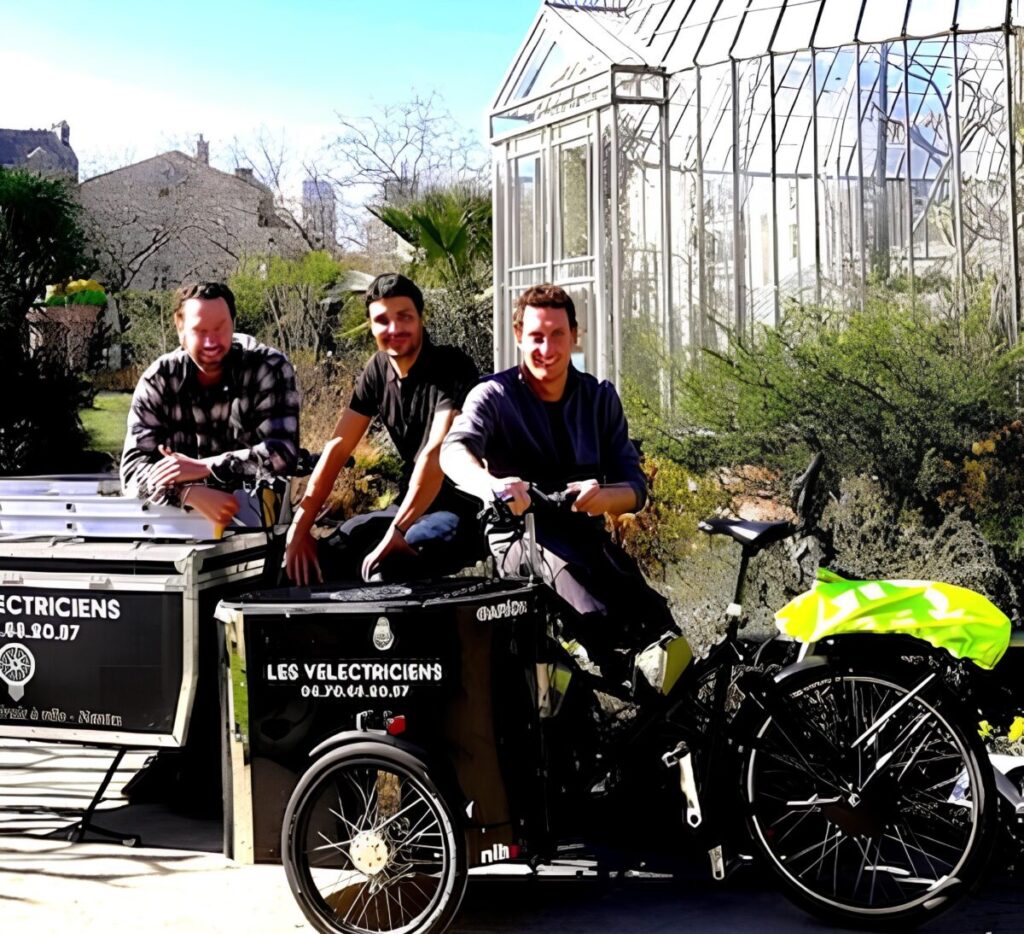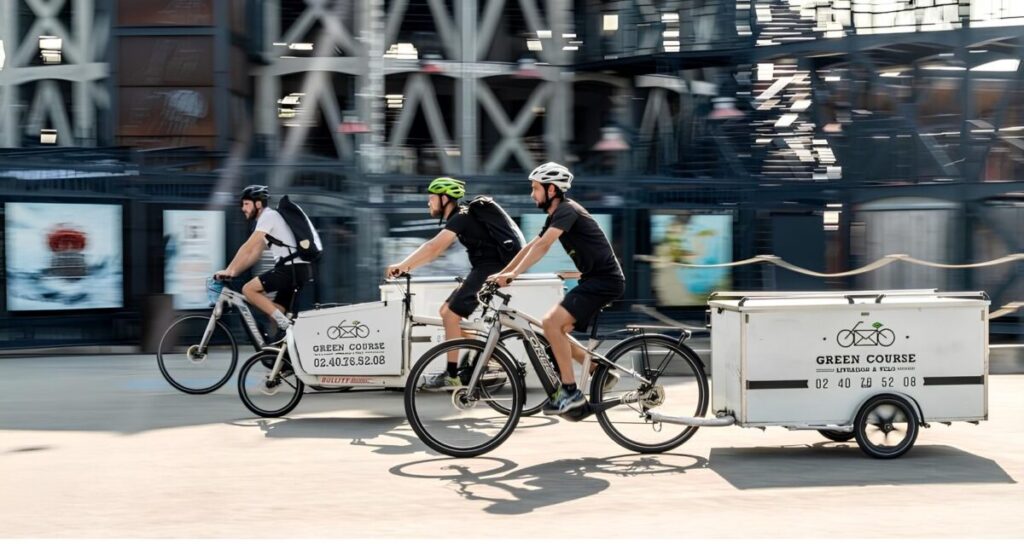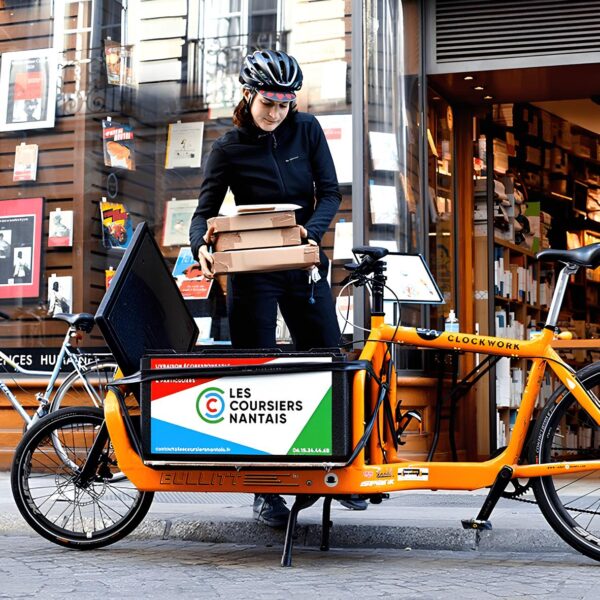Whether they are artisans, delivery people, or restaurateurs, they have chosen to swap their vehicle for a bike. In recent years in France, more and more people are opting for soft mobility, mainly in city centers. Like in Nantes, where the association Les Boîtes à Vélo (The Bike Companies) encourages bike entrepreneurship and supports its use as the main mode of professional transportation.
Mobility # 1
“In Nantes, among our members, we also have a DJ and a lute maker!”, smiles Romain Allais, regional development officer for Les Boîtes à Vélo (The Bike Companies). It is in his city that the first association was created in 2013. There are now thirteen branches in France. He himself uses this mode of transportation almost exclusively in his professional life. “I started when I was under contract with one of the first bike plumbers in France, Ze Plombier. He realized that everything was complicated with a utility vehicle: moving around, parking... I was then in a career change, living in downtown Nantes, and I really liked it! The job is completely different on a bike.”
Helping to develop bike mobility
Initially, the association aimed to bring together bike workers so they could share their issues, desires, and experiences. And also to give a boost to this way of considering professional travel. “Now, the association has two objectives: to help develop professional bike mobility and to meet the needs of its members,” details Romain Allais.
To meet the first objective, Les Boîtes à Vélo have implemented numerous actions. In events, for example, since the association tries to be as present as possible at certain events. It needs to prove that it exists and show everything that can be done by bike.

Also in assisting the creation of bike businesses, notably through a program called Ma Cycloentreprise. Created in 2019 for three years, it has allowed entrepreneurs interested in working by bike to conduct a concrete assessment of their project. This takes place in three stages: a collective training, theoretical and practical, then individual technical support, and finally, financial assistance (20% of the purchase price of the bike – based on criteria), managed by Adie (a recognized public utility financing organization) and supplemented by local bike subsidies. “We even go further,” explains Romain Allais, “by working with local authorities on urban planning, favorable standards to establish. We also visit companies to help them transition to a professional bike practice.”
Normalizing work by bike
The second objective of the association Les Boîtes à Vélo is to meet the needs of its members. These can also include sellers, manufacturers, or bike repairers. “We organize an afterwork once a month around a drink. The convivial aspect is really very important to us. The idea is to discuss, spend time together, and inform interested people. Elected officials now come regularly!”, specifies Romain Allais. The idea is also that everyone can give a bit of their time, by providing advice, supporting change, or simply offering to... test their bike!
“The technical issue is fundamental in these professions: which bike to choose, how to repair it, what budget to allocate, how to insure it, etc.,” says Michel Bertrand, creator of the cargo bikes IlI Cycles, and a member of the association. “The experiences of each are important to share... and help remove barriers!” This is confirmed by Étienne Dreyer and Nicolas Martin, creators of Etnicycles and of course members of the association. “The workshops on cargo bikes are really useful for interested professionals. On our side, being a member allows us to be identified and to lend a hand if needed.”
Shining across the territory
While the association has been able to structure quickly and develop branches elsewhere, it still needs to establish its geographical field of action. “For example, we have no associations at all in Brittany,” notes Romain Allais. “And although we started in Nantes, we are not present in the surrounding departments either.” Some local authorities, some cities or regions are still quite closed to discussions with the association, or even impossible to reach to discuss the subject of professional mobility by bike. “Yet, we have signed a national agreement with the Chambre des Métiers et de l’Artisanat (Chamber of Trades and Crafts), titled *Have you thought about doing your job by bike?*. It’s in the air of the times.”
Today, Les Boîtes à Vélo hope not only to secure their economic model but also “to offer a complete catalog of services to help as many professionals as possible to get started. Because we believe that all professions can be practiced by bike.”

Cover photo: delivery people, restaurateurs, and artisans are the main users of professional bikes ©DR
